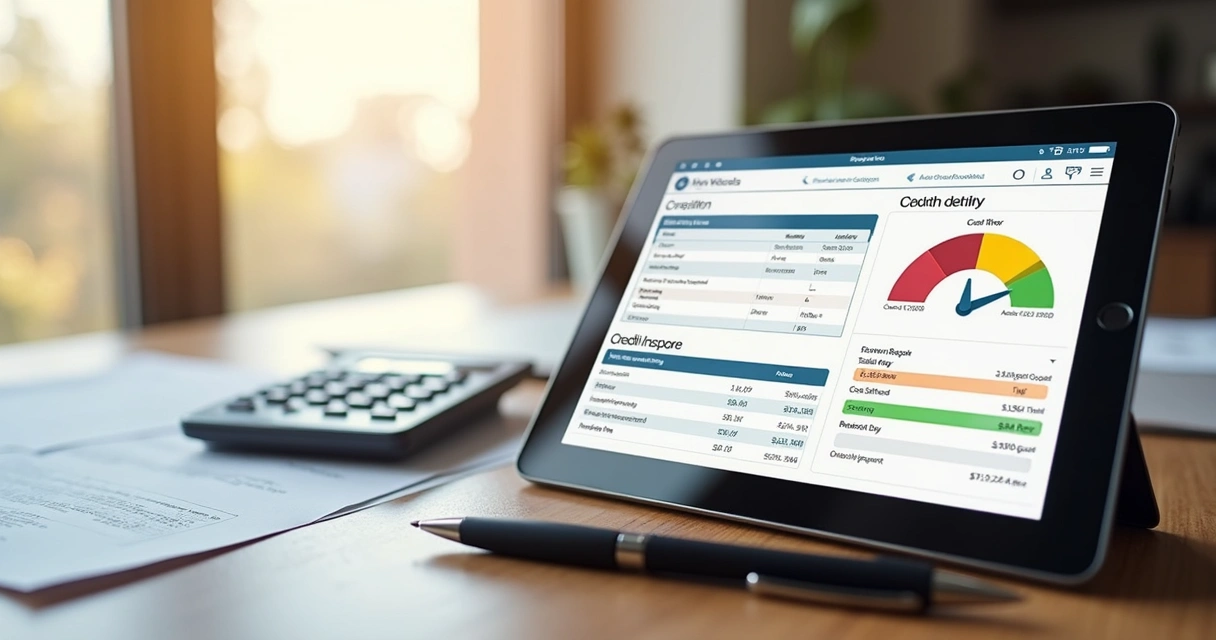If you’re thinking about buying a home, refinancing, or even investing in U.S. real estate, understanding your credit profile isn’t just helpful—it really shapes what kind of doors open for you. I’ve worked with countless clients at Heart Mortgage, and one thing always comes up: your financial record is at the center of your home buying journey. The question is, do you know how it works and what you can do to put yourself in the best light?
Credit report vs. credit score: Why both matter
Sometimes people tell me they use “credit score” and “credit report” as if they’re the same. They’re not, and the difference can make all the difference in your mortgage approval odds.
A credit report is a detailed record of your credit history, listing all your debts, payment records, and public financial data. It comes from agencies like Equifax, Experian, and TransUnion. On the other hand, your credit score is a three-digit number—usually between 300 and 850—that sums up your likelihood of repaying debts, based on your report.
Imagine your credit report is like your high school transcript (full of details about every class and grade), while your score is your GPA—just a quick summary.
Lenders will always want both.
For home loans, most lenders in the U.S. lean on the FICO score, though other models, like VantageScore, are gaining space as noted in Federal Housing Finance Agency updates.
Building blocks: How your credit score is calculated
When I help someone start the mortgage process at Heart Mortgage, I always break down how that “magic number” is created. FICO, the main scoring system, weighs factors as follows:
- Payment history (35%): Have you paid your bills on time?
- Debt owed (30%): How much of your available credit are you using?
- Length of credit history (15%): Older accounts help more.
- New credit inquiries (10%): Lots of recent checks can lower your number.
- Types of credit used (10%): A mix (loans, cards) works in your favor.
Some people think paying off a loan will improve their score immediately. Sometimes that’s true, but other times the lack of active credit or a sudden drop in available credit can momentarily hurt.

“Good credit is a mix of paying on time, using credit wisely, and building relationships over years.”
How lenders use credit scores for home financing
In my experience, it’s rare for a lender to skip looking at your credit score when considering you for a mortgage. They use it to predict risk. The higher your score, the more likely you are to get approved—and often at a lower interest rate.
Studies from the Federal Reserve Bulletin highlight how average credit scores for mortgage borrowers rose about 40 points between 2006 and 2011, making it harder for those with lower scores to get approved. In fact, another study found that after the last financial crisis, lenders started demanding even higher scores for approval.
Interest rates and terms are also closely tied to this number. For instance, in cases I’ve worked on, a borrower with a score over 760 often got a more favorable offer than someone around 650—with the difference in total payments over 30 years running into the tens of thousands.
If you want to read more about pre-approval specifics, see the Heart Mortgage guide to mortgage preapproval.
A small gap in your score can mean a big difference in your monthly payment.
What hurts or helps: Key factors in your credit profile
I’ve watched many clients improve their home loan prospects by changing just a few habits. Knowing what matters is the first step.
- Late payments—especially recent ones—pull scores down fast. Even one late mortgage payment can linger for years.
- High utilization, meaning you’re using more than 30% of your available credit, can be a red flag. Try to keep it well under that threshold.
- Opening lots of new credit cards in a short time looks risky to lenders.
- Having a short credit history, or only one kind of credit, doesn’t show lenders enough about your habits.
On the flip side, a clean track record, a long history, and different types of accounts—these all build trust.
Can I fix my credit? Steps future homebuyers can take
I get this question a lot. The honest answer: Yes. While there’s no overnight fix, persistent, focused steps really do move the needle.
- Get your credit reports, free. By U.S. law, you can get a free report every year from each of the three bureaus at annualcreditreport.com.
- Check for mistakes. Wrong addresses, loans that aren’t yours, payments marked late by accident—any of these can lower your score unfairly.
- Dispute errors with the bureau that lists them. They have to investigate within 30 days by law.
- Pay down balances on credit cards so you use less than 30% of your limit.
- Pay on time, every month, even if it’s just the minimum.
- Keep old credit lines open, unless there’s a good reason to close them (like fees).
Sometimes, I help clients who have faced tough credit situations get FHA loans or other options; you can read more in our guide for low-credit homebuyers.
Persistence pays off—credit health is built step by step.

How to check your credit and know your rights
There’s no guesswork needed. You have the right to access your credit data, to challenge mistakes, and to keep watch regularly—especially before any big purchase like a home.
- Every 12 months, you can request a free report from each bureau. That’s three opportunities to find or fix issues per year. Go to annualcreditreport.com—the official site.
- You are also entitled, in some situations, to free reports after being denied credit (if you request within 60 days).
- Your score, however, may not appear automatically. Many banks give it for free online; otherwise, you can buy it or use services tied to your accounts.
If all this feels confusing, you’re not alone—I’ve walked through the reports with first-time homebuyers, line by line, making sure nothing holds them back.
Why continuous credit monitoring matters for home goals
Trust me, life gets busy. But if you’re planning to make a move in real estate within the next year or two, I’d say checking your credit several times a year is smart. Many changes, like hard inquiries or disputes, don’t show up right away.
Continuous monitoring can prevent surprises. I remember a client who discovered identity theft right before closing. Because they checked early, we fixed it fast, and their mortgage was saved. For more insights, explore the credit resources at Heart Mortgage.

Small steps, bigger results: Why your score shapes your future
In my years at Heart Mortgage, I’ve seen how understanding and tending to your credit history can turn home hopes into reality. It shapes not only if you’ll be approved, but how much you’ll pay—sometimes for decades. For further reading about different mortgage types and how your score factors in, the mortgage education section is a helpful resource.
Check, understand, improve—your credit is the ticket to unlocking your next home.
If you want help figuring out where you stand or what you can do today to boost your odds, Heart Mortgage is ready to walk with you at every stage. Reach out to our specialists, and take your first informed step towards your dream home.
Frequently asked questions
What is a good credit score for a mortgage?
Generally, lenders look for scores above 620 for conventional loans, but many prefer 700 or higher for the best rates. FHA loans may accept lower scores, starting around 580. For a deep dive into top credit scores and their benefits, you might find the post on highest credit scores useful.
How does my credit impact home loans?
A higher score improves your chances of approval and often secures lower rates. According to Federal Reserve research, lower credit marks mean higher chances of loan denial and steeper costs.
How can I improve my credit score?
Strong improvement steps include checking reports for errors, paying down debts, making payments on time, and keeping old accounts open. Even small changes add up over months. More extensive tips are available in the Heart Mortgage credit tips.
Does checking credit score hurt approval chances?
No. Soft inquiries, like checking your own score, don’t impact your number at all. Only “hard” inquiries (when lenders check because you’ve applied for credit) might cause a minor, brief dip.
Why do lenders care about credit history?
Lenders use your history to judge how likely you are to repay a loan. Studies following Federal Reserve guidance have shown that borrowers with poor credit profiles are more often denied and, if approved, pay more. Long, positive histories help show you’re a safe bet.





